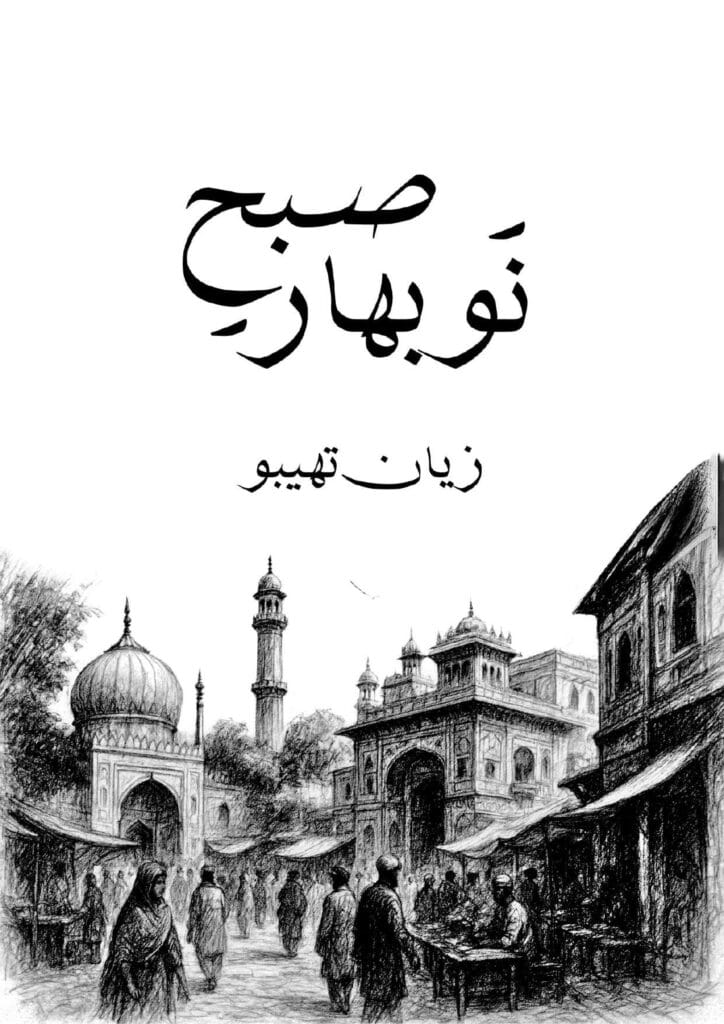یہ کہانی ایک ایسے وقت کی ہے جب ہندوستان پر مغلیہ سلطنت کے چراغ بجھ چکے تھے اور انگریزوں کی غلامی چھا رہی تھی۔ ریاستِ بلخ آباد کے باغی شہزادے کی داستان ہے، جو اپنے عوام کی آزادی کے لیے انگریزوں اور اپنے ہی محل کے نظام کے خلاف آواز بلند کرتا ہے۔ وہ ایک عام لڑکی سے محبت کرتا ہے اور خفیہ نکاح کر لیتا ہے، مگر اس کی بغاوت اسے قید و دار تک پہنچا دیتی ہے۔
Set in the twilight of the Mughal Empire, this Urdu historical and social commentary-based novel unfolds in a time when India was on the verge of colonial submission and freedom flickered like a dying flame. It is the story of a rebel prince of the fictional state of Balkhabad, whose voice rises amid tyranny, betrayal, and love — a voice that dares to challenge both the British colonial rule and the oppressive traditions of his own palace.
This is not merely a tale of swords and kingdoms — it is a romance-based, rebellion-centered, and politically charged historical Urdu novel that captures the essence of an era where loyalty was tested, love was forbidden, and courage was punished. The rebel prince stands as a symbol of resistance — a young royal who refuses to inherit the silence of submission. Instead, he chooses the dangerous path of truth, freedom, and justice.
Amidst the dust of rebellion and the echoes of war, the prince falls in love with an ordinary girl — a woman untainted by palace politics and untouched by power. Their forbidden love blooms in secrecy, a fragile flower in the harsh desert of fate. The prince, defying royal law and societal norms, marries her in a secret nikah, sealing his love with both faith and defiance. Their union, however, becomes the first spark in a fire that consumes everything around them.
As the story deepens, love turns into sacrifice, and rebellion turns into destiny. The prince’s fight for freedom from the British — and from the corrupt aristocracy of his own bloodline — makes this novel a revolutionary love story that intertwines passion with patriotism. It carries the emotional weight of romantic tragedy, the thrill of political rebellion, and the spiritual undertone of faith-driven resistance.
At its core, the story is social commentary-based, exposing the hypocrisy of those in power — the rulers who claim honor yet sell their integrity to foreign masters. It depicts the fading glow of the Mughal cultural legacy as the British Empire tightens its grip over Indian soil, turning once-proud states into puppets. Through this backdrop, the novel explores deeper themes of identity, resistance, and redemption.
Every chapter unfolds like a historical fresco — palaces drenched in intrigue, battlefields echoing with cries of freedom, and hearts struggling between love and duty. The prince’s journey from privilege to prison mirrors the fall of empires and the birth of new ideals. His rebellion is not just political — it is spiritual. It questions what it truly means to be free, to love, and to lead.
The emotional heart of the novel lies in its romantic tragedy — the lover who sacrifices his world for truth, and the beloved who bears the burden of silence. Their love, though shadowed by fate, becomes immortal — a poetic testament to loyalty, sacrifice, and faith.
This story will resonate deeply with readers who admire historical Urdu fiction, romantic suspense, and freedom-based narratives.
Ultimately, this novel is a tale of rebellion, romance, and redemption — a story where kingdoms crumble, but ideals survive. It reminds readers that empires fall not when their walls break, but when their people stop believing in truth. And it is in that very belief — in love, justice, and resistance — that this novel finds its soul.

